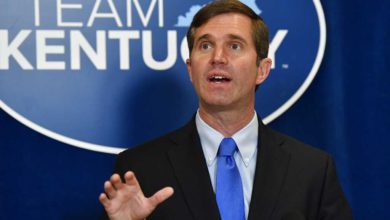
- With ballooning inventories and an uncertain economic outlook, retailers may start aggressive sales.
- Shoppers could finally get a small break from inflation this holiday.
- But that's only if consumers have enough money left and enough confidence in the economy to spend.
Discounts are what consumers want and that’s likely what they’ll get this holiday season, analysts say, but how much consumers will be able to afford to spend remains the wildcard.
Overall holiday sales between November and January should rise 4% to 6%, down from 15.1% last year, to $1.45 to $1.47 trillion, Deloitte said. E-commerce sales will grow by 12.8% to 14.3%, year-over-year, to between $260 billion and $264 billion this season, it said.
Much of the sales increase in dollar terms will be a result of higher prices, though, with retailers seeing much less in sales volume, Deloitte said. If nominal sales, or sales in dollar amounts, are adjusted for inflation, some analysts say retail sales could decline from last year.
“The macro environment is worsening, not improving,” Mari Shor, Columbia Threadneedle senior research analyst, said.
Surviving inflation's grip:America's aching economy is forcing tough choices. How people are 'barely making it' work.
Is Amazon the holiday bellwether?
Amazon’s two-day Prime Day event, starting Tuesday, will set the holiday sales pace in terms of consumers’ spending mood as well as the amount of timing of discounts, analysts say.
The ecommerce giant’s 48-hour July event saw spending of $11.9 billion, up 8.5% year over year, and boosted average U.S. online revenue by 141% compared to an average June day, according to Adobe’s analytics. That was the “biggest e-commerce moment of 2022,” it said.
“We expect Prime Day will pull discounting and sales forward,” Patrick Brown, Adobe vice president of growth marketing and insights, said.
To compete, other retailers like Walmart, Kohl’s, Macy’s and Target are all having multi-day early sales.
Brown said consumers will likely see discounts online as high as 15% this month, up from an average 10% during last year’s early days, as retailers contend with overflowing inventory and a softening consumer spending environment.

Amazon deals:The best early Black Friday deals at Amazon ahead of October Prime Day
What if early sales are weaker than expected?
Expect consumers to get a reprieve from inflation because retailers might start to feel the pressure and aggressively discount to dump inventory.
At the start of summer, retailers like Target and Walmart already said they had too much inventory. When shipping was clogged, they ordered more hoping to get some and then when ports unclogged, all the merchandise poured into their warehouses. They said they would slash prices over the summer to move inventory and make room for holiday merchandise.
By the third quarter, though, the companies revealed in earnings calls that inventory had ballooned further.
“If early sales are lackluster sales, there’s a lot of trepidation by retailers,” said Sarah Wyeth, S&P Global Ratings retail & restaurants sector lead. “They don’t know how bad it will get for consumers in November. Consumer confidence may go back down and the (Umidterm) election is a wild card.”
Inflation diet:No more steak. Ordering out less. Here's how inflation is squeezing American diets.
Inflation still reigns:Is Biden responsible for dip in inflation? President's victory lap is premature, experts say
How much discounting can consumers expect?
Record discounts, Brown says. He predicts online discounts could go as deep as 32% or more as November rolls around if retailers feel they’re not getting enough early traction. For the season between Nov 1 and Dec 31, Adobe forecasts online sales to rise 2.5% from last year to $209.7 billion, which may sound weak but it notes that consumers have spent heavily online so far already this year.
Computers, electronics, and toys leading price drops. Computer discounts are seen as high as 32%, up from 10% last year, while electronics hit 27%, up from 8%, Brown said. Even toy prices, a holiday staple, are seen shedding 22%, more than the 19% price cut last year, he said.
Apple bite:Apple reports strong earnings but warns of supply shortages and COVID shutdowns ahead
Best toys:Walmart just dropped its 2022 Top Toys List—here are the 10 best gifts to buy
When can I expect the best sales?
It depends on what you want to buy, but generally, Brown says the biggest online discounts will hit between Thanksgiving and Cyber Monday.
Thanksgiving Day (11/24) will be the best day to shop online for electronics, while Black Friday (11/25) will have the best deals for televisions. That Saturday (11/26) will have the biggest discounts for toys, with the best deals for apparel and sporting goods arriving on Sunday (11/27). Those looking to buy a computer or furniture should shop on Cyber Monday (11/28), and appliances will see top discounts on 12/1, he said.
But if you haven’t shopped by the beginning of December, don’t worry, Shor says.
“I feel very confident I’m not going to steer you wrong telling you that you can wait for discounts,” she said. “People will be waiting for discounts, especially since the narrative in the media is that inventory is heavy, and promotions are coming. Out-of-stock levels will also be low, so you don’t have to worry too much.”
Second-hand gifts:Get ready thrifters: Goodwill launches GoodwillFinds.com so you can now shop from home
Prime sales:What is the Prime Early Access sale? Here's everything you need to know about Amazon's October Prime Day
Should I shop in person or online?
If you shop early, you may find good deals online and the best shipping rates. FedEx, USPS and UPS raise their shipping rates during peak holiday season, and for the first time, Amazon’s increasing its merchant fulfillment fees.
But last-minute shoppers might find the deepest discounts and skip shipping fees by either going in person or using curbside pickup.
Top presents:Shop for everyone on your list with this ultimate guide to the best holiday gifts of 2022
Buying around inflation:Christmas is right around the corner. Here's how inflation could affect holiday shopping.
Stores may be crowded due to “pent up demand for doing things in person,” Wyeth said. "Some people really enjoy that crazy holiday madness and miss it. This will be the first normal holiday in a while. There aren’t too many extraneous things, like social distancing, from the pandemic. There’s also less excess cash and distortedly high consumer demand. I think this will give us more insight into what the future holds for consumer demand and how they want to shop.”
Medora Lee is a money, markets, and personal finance reporter at USA TODAY. You can reach her at [email protected] and subscribe to our free Daily Money newsletter for personal finance tips and business news every Monday through Friday morning.
Source link








